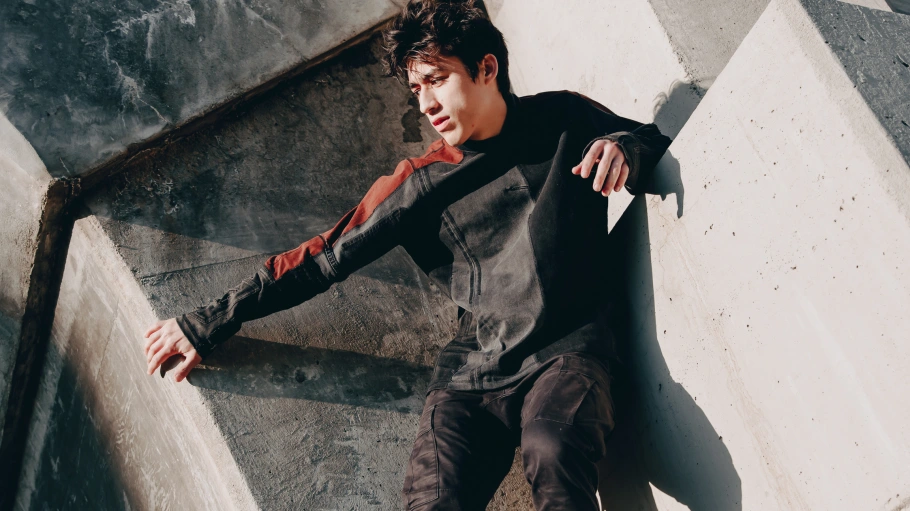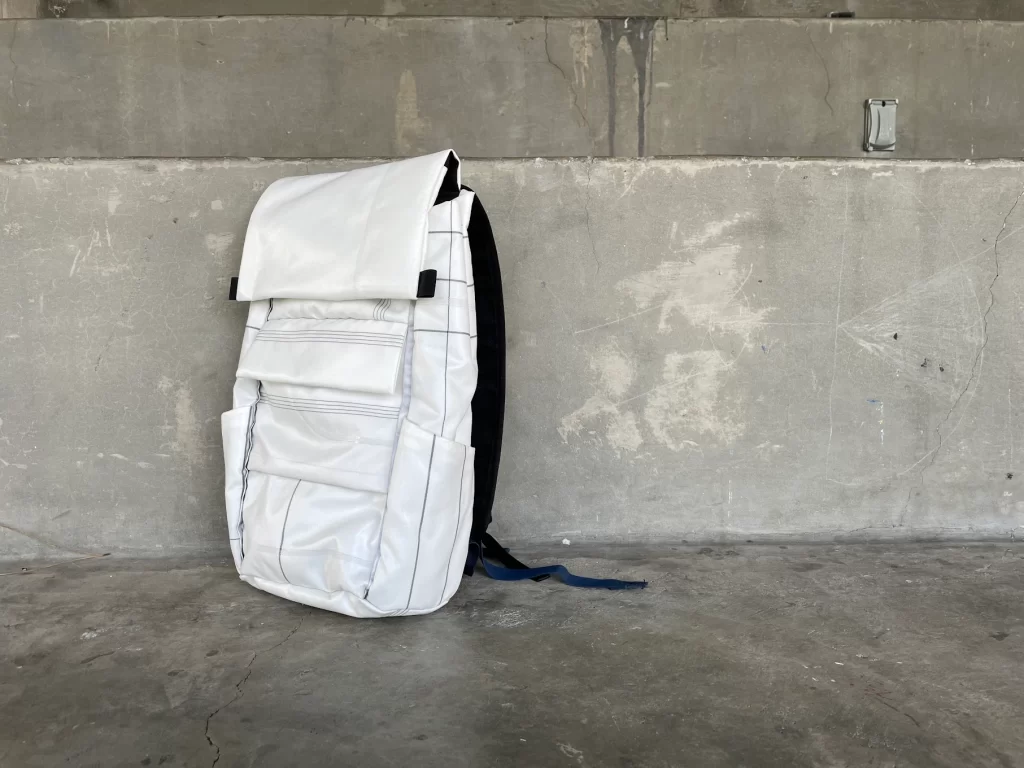L.A. Fashion Students Learn Circular Entrepreneurship With Sustainable Future in Mind
At ArtCenter College, students work with local factories to use recycled or leftover material.

Design student Preston Sanchez’s assignment was this: Make a product that uses only recycled or leftover material in a local Los Angeles factory.
At first, he wasn’t sure what he wanted to do. “I thought about it. And then I decided it would be really cool to make a sweatshirt or sweater made of upcycled denim,” he said.
Four prototypes later, Sanchez produced a denim sweatshirt that is actually comfortable because the material is so soft from constant use. “When I got it back, I was super excited,” he said. “My vision came true even though there were some small tweaks.”
From his assignment he learned this: sustainability has to be at the forefront of design. “You can’t design something without thinking of that process,” he explained.
Sanchez was one of eight students enrolled in a relatively new class called “EcoMadeinLA: Introduction to Circular Entrepreneurship” at the ArtCenter College of Design in Pasadena, Calif.
The course was created by adjunct professor Mateo Neri, who received a $30,000 grant from VentureWell, a Massachusetts nonprofit that funds and trains faculty and students to create socially beneficial businesses. The grant was used to pay for students’ costs and materials to make their products.
Neri normally teaches an “Introduction to Entrepreneurship,” but he saw a need for a course that combined entrepreneurship with sustainability because that’s the future. “I wanted to avoid all the problems we are seeing in the supply chain with buying fabric in Asia and making it in Europe. You are better off using local resources and that is more sustainable,” Neri said.
To fill the demand for more designers trained in sustainable practices, fashion schools are offering master’s degrees, certificates and minors in sustainable fashion, or carving out special classes about upcycling, recycling and using cutting-room-floor scraps such as the one at ArtCenter.
L.A. has earned a reputation as a center for sustainable fashion innovation, with Saitex, dubbing itself the “cleanest denim factory in the world,” opening in 2021, and producing garments for Frame and Everlane, among others, as well as pioneering homegrown brands such as Reformation and Christy Dawn helping to make offsetting carbon emissions cool.
In Neri’s class, students worked with local factories to use recycled or leftover material to create products such as a sweatshirt, a tote bag or even a couch.
Anna Joy Lee, a product design student, said she took the class because she wanted to design something that would last. “We buy so many things that are not meant to last and go directly to the landfill,” she said.
For her tote bag, backpack, pouches and a surfboard bag, she used air-bag material left on the cutting-room floor. “Air-bag material lasts, according to the automotive industry, at least 10 to 15 years. But it really doesn’t wear down,” she said.

Lee worked with David Garcia of D&D Leather Goods, an L.A. contractor. Garcia said he had never worked with air-bag material, but he has fashioned old blankets into bags. “Many of my clients, about 60 to 70 percent, want sustainable products now,” he said.
Student Jess Ziman focused on furniture, creating a 70-inch-wide couch made of leftover air-bag material, old denim, shredded plastic bags and off cuts of foam. From her leftover scraps after making the couch, she crocheted baskets.
Sustainability is important to Ziman because she used to work in restaurants and saw enormous amounts of food tossed out every evening. “It is something I found frustrating,” she said.
To her, sustainability is not just about the materials, but also the manufacturing. “The entire process is really important to me,” she explained. “If you are not adding to the world and not doing something to improve our space, then why do it?”
But there were challenges. She worked with Elizabeth Rodriguez-Buluk, who has a custom-design furniture factory and store in L.A. “We put a lot of time into it,” Rodriguez-Buluk admitted.
Ziman learned it can be difficult to make a sustainable product. “There is so much extra work and added costs and labor. You are sourcing material you need to be really creative with,” she said. “I also learned that sustainability is not about being perfect. But if you get it 85 percent right, you have an impact on the world.”
Now that the class is over, the students are showing their products on Saturday from noon to 6 p.m. at a pop-up store at 584 Mateo Street in the trendy L.A. Arts District.
